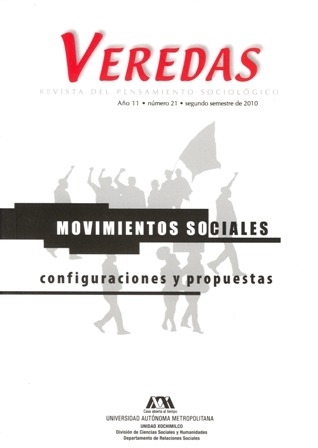Language
Information
Keywords
VEREDAS, REVISTA DEL PENSAMIENTO SOCIOLÓGICO. Año 24, número 47, julio-diciembre de 2023, es una publicación semestral editada por la Universidad Autónoma Metropolitana, a través de la Unidad Xochimilco, División de Ciencias Sociales y Humanidades. Prolongación Canal de Miramontes 3855, Ex Hacienda San Juan de Dios, Alcaldía Tlalpan, C.P. 14387, Ciudad de México, y Calzada del Hueso 1100, Col. Villa Quietud, Coyoacán, 04960, Ciudad de México, teléfono: 5554837090. Página electrónica de la revista: https://veredasojs.xoc.uam.mx/index.php/veredas, dirección electrónica: veredas@correo.xoc.uam.mx, Editor responsable: David Benítez - Director de la revista, Certificado de Reserva de Derechos al Uso Exclusivo del Título No. 04-2012-070312553100-102, ISSN en trámite, ambos otorgados por el Instituto Nacional del Derecho de Autor. Responsable de la última actualización de este número: David Benítez, Departamento de Relaciones Sociales, División de Ciencias Sociales y Humanidades, Unidad Xochimilco, Calzada del Hueso, número 1100, colonia Villa Quietud, Alcaldía Coyoacán, código postal 04960, Ciudad de México. Fecha de última modificación: 26 de enero de 2026. Tamaño del archivo: 905 MB.
Las opiniones expresadas por los autores no necesariamente reflejan la postura del editor de la publicación.
Queda estrictamente prohibida la reproducción total o parcial de los contenidos e imágenes de la publicación sin previa autorización de la Universidad Autónoma Metropolitana.





